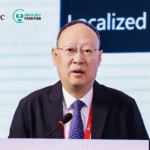
Editor’s Note: The “2025 Pujiang Prostate Cancer Academic Conference,” held in Shanghai from June 27 to 28, was jointly hosted alongside the Annual Meeting of the Chinese Society of Clinical Oncology Prostate Cancer Committee (CSCO-PC), the Prostate Cancer Subcommittee of the Chinese Anti-Cancer Association (CACA-GO), and the Chinese Prostate Cancer Consortium (CPCC). With the theme “Global Wisdom, Chinese Practice, and Precision Breakthroughs,” the event gathered leading domestic and international experts to share the latest advances and clinical insights in prostate cancer care. At the conference, Professor Xudong Yao, Director of the Department of Urology at Shanghai Tenth People’s Hospital (Tongji University Affiliated Tenth People’s Hospital), delivered a keynote presentation titled “Exploration and Outlook on the Comprehensive Management of Prostate Cancer.” In an interview with Oncology Frontier – UroStream, he discussed his team’s experience and scientific work in prostate cancer management.01
Oncology Frontier – UroStream: To begin, could you share your team’s clinical experience and research achievements in the field of prostate cancer?
Professor Xudong Yao: Prostate cancer is one of the most common malignancies in urology. In China, a significant proportion of patients are diagnosed at a locally advanced or late stage, resulting in a relatively low five-year survival rate. Our team is committed to advancing prostate cancer screening, diagnosis, treatment, and research. In response to national society initiatives, we have actively promoted early detection and screening through community-based programs and online public awareness campaigns to improve public understanding of prostate cancer.
Meanwhile, we also focus heavily on managing advanced prostate cancer. In clinical practice, many patients present with symptoms like urinary retention or hematuria, but without clear signs of bone pain or metastasis—these are typically categorized as locally advanced or late-stage cases. Based on years of clinical experience, we believe that an integrated treatment approach combining surgery, radiotherapy, and systemic drug therapy is critical for improving outcomes in these patients. These strategies not only offer rapid tumor control and symptom relief but also help delay progression to castration-resistant prostate cancer (CRPC). Our team has gained substantial clinical experience in treating advanced disease.
On the research front, we’ve explored the expression of CD276 in prostate cancer and its mechanistic role in the tumor immune microenvironment. We’ve published several studies in both domestic and international journals, including Prostate Cancer and Prostatic Diseases. In addition, we’ve conducted in-depth investigations into the molecular mechanisms of advanced prostate cancer, particularly metastatic CRPC (mCRPC). Looking ahead, we hope to further expand our efforts and contribute meaningfully to the advancement of prostate cancer diagnosis and treatment in China.
02
Oncology Frontier – UroStream For patients with advanced prostate cancer, how does your team work to minimize treatment-related side effects while prolonging survival?
Professor Xudong Yao: In China, advanced prostate cancer is relatively common, and androgen deprivation therapy (ADT) remains the standard first-line treatment. However, it can cause several side effects such as hot flashes, night sweats, fatigue, and a general sense of weakness. We make sure to fully inform patients about these potential adverse effects and provide guidance on how to manage them.
For example, we encourage patients to maintain a regular daily routine and engage in moderate physical activity—such as calisthenics, brisk walking, or light jogging—to enhance their quality of life and aid in recovery. These supportive measures can help patients better tolerate treatment and experience improved outcomes during their cancer journey.
03
Oncology Frontier – UroStream In the context of comprehensive prostate cancer management, how does your team utilize multidisciplinary collaboration to optimize treatment plans?
Professor Xudong Yao: Prostate cancer is one of the most common malignancies of the urinary system, and we strongly advocate for multidisciplinary team (MDT) management. Our prostate cancer care team includes specialists from pathology, radiology, radiation oncology, nuclear medicine, medical oncology, and urology.
Through MDT collaboration, we aim to provide patients with comprehensive and individualized treatment strategies. Since patients at different stages and grades of disease benefit differently from surgery, radiotherapy, chemotherapy, or hormonal therapy, selecting the most appropriate treatment at each point in time requires close coordination across specialties. This approach ensures standardized and precise care, helping to extend survival, enhance quality of life, and ultimately deliver more satisfactory treatment outcomes.



